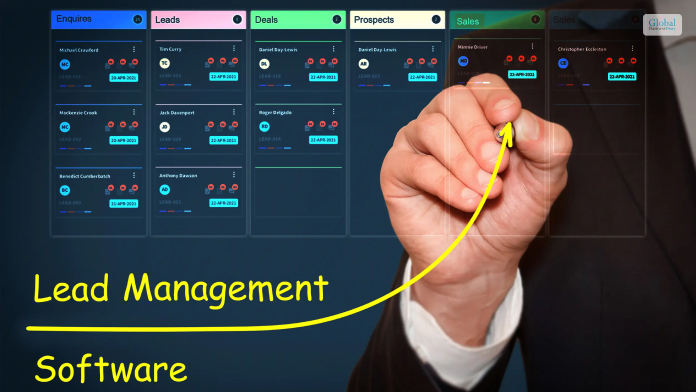How Does The Procurement Process Work? Essential Things To Know About It

The procurement process has been an essential part of the business since its existence. The process of buying the products and services for running the business smoothly forms an essential part of the organization.
You need to get the supplies at the lowest cost procurement while maintaining the bottom line in the business. The procurement team works in coordination with the other departments of the organization. To get the necessary pieces of equipment essential for day-to-day work.
If you want to grow your business smoothly, you cannot ignore the importance of the procurement process. It forms an integral part of the business that can help your organization to grow. Seek the help of a strategy consultant if you face any difficulty in the process.
What Is A Procurement Process?

The procurement process refers to the series of steps an organization follows to acquire goods, services, resources from external sources. It involves everything from identifying the need for a product or service to the final payment. You need to be well aware of your organization’s needs.
How Does The Procurement Process Work?

There are several ways the procurement process works in an organization. You need to be well aware of it while meeting your organizational goals with ease. Some of the key processes which you can employ are as follows:-
1. Identifying The Needs With Procurement Process
Departments or individuals within an organization identify the goods or services required. This might involve assessing inventory levels, forecasting future needs, or responding to specific project requirements. Here the seller’s concessions also form an important part. It can reduce your cost significantly.
2. Specification Development
Clear specifications or requirements and draft the details of quality, quantity, timelines, and any other specific criteria. It will help you to keep accurate records of the products that you are purchasing from the market. Furthermore, it will guide you in times of crisis if you face any legal complications.
3. Supplier Identification
Potential suppliers or vendors you need to identify through databases, market research, or by issuing requests for information (RFI). It is the third most important step in the procurement process that you cannot ignore from your end. Once you follow this step, things are going to be easier for you.
4. Request For Proposal Or Quotation
A formal document is sent to potential suppliers outlining the requirements and soliciting their proposals or quotes. This document includes information about the organization, its specific needs, evaluation criteria, timelines, and terms and conditions. It is one of the vital steps in the procurement process that you cannot ignore from your end. Follow the correct process that can make things easier for you.
5. Proposal Evaluation
Received proposals reviewed and evaluated based on various criteria such as cost, quality, delivery time, supplier reputation, and compliance. You need to be well aware of this step at the time of proposal evaluation of the procurement process. Even a single small aspect is not left out in this process. Try to know the complete process to have a better insight into it. Consider the capital expenditure in this regard seriously.
6. Negotiation With Procurement Process
Discussions take place with selected suppliers to finalize terms, prices, delivery schedules, and other conditions. This stage aims to reach a mutually beneficial agreement. The process of negotiation in the procurement process aims to offer a win-win solution to both parties. Working with experienced procurement specialists, such as ProcureAbility, can help streamline negotiations and ensure the best possible terms for your organization.
7. Contract Creation With Procurement Process
A formal contract is drafted detailing the agreed-upon terms, responsibilities, timelines, and any other pertinent information. Both parties review and sign the contract. The agreement signifies the fact that both parties agree on the terms and conditions of the procurement process. Once you follow the correct method, things are going to be easier for you in the long run.
8. Purchase Order
After the contract is signed, a purchase order is issued to the chosen supplier. The PO specifies the details of the purchase, including quantities, prices, delivery dates, and any other relevant terms. The PO is proof that both parties agree with the terms of the contract and that they can proceed with the procurement process. You need to know the complete process to make the process feasible for your business.
9. Goods & Service Receipts
Upon delivery, the organization receives the goods or services and checks them against the agreed specifications. Any discrepancies or issues are addressed with the supplier. Once you get the receipts of the goods and services, it will become easier for you to complete the process of procurement.
Types Of Procurement Process
There are several types of procurement processes that you must be well aware of. You must not make your choices in grey. However, when you follow the correct process, things will become easier for you at the time of procurement. Some of the key types of procurement process are as follows:-
1. Direct Procurement
This involves the acquisition of goods or services directly used in the production of a company’s offerings. For example, raw materials, machinery, or components for manufacturing.
2. Indirect Procurement
Indirect procurement involves acquiring goods or services that are directly not involve in the production process but are essential for business operations. This might include office supplies, IT services, marketing services, etc.
3. Service Procurement
This focuses specifically on acquiring various types of services rather than physical goods. It could involve hiring contractors or consultants or outsourcing specific tasks like cleaning, security, or legal services.
4. Strategic Procurement
This approach involves a more long-term and strategic view of procurement. It considers factors beyond immediate cost savings, such as supplier relationships, risk management, innovation, and overall value creation.
5. Sustainable Procurement
Also known as green procurement or responsible procurement, this type emphasizes the environmental, social, and ethical impacts of procurement decisions.
Final Take Away
Hence, if you want to develop the perfect procurement process in your organization, then you cannot ignore the facts mentioned. You should follow the right process in this matter. It will help you to make a perfect deal for your business. Share your experiences with us in our comment box. It will help us to know your feedback in this matter. Your feedback forms a valuable part of our content strategy. So, you must not ignore this fact from your end.
Read More Business Related News By Clicking Below!!













